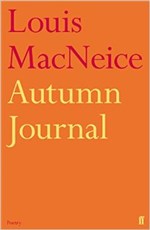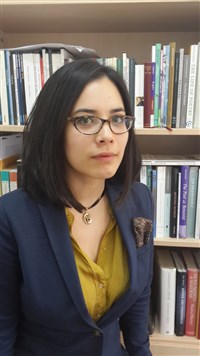Heather H. Yeung, Assistant Professor, Department of English Language and Literature
BY MELİS ERDEM (ARCH/II)
Here is another in our series of interviews with Bilkent faculty members discussing books that have influenced their lives and careers.
I think for anyone, and particularly someone who is in English literary studies, it’s very difficult to narrow the choice down to a favorite book, and so I would say, I definitely don’t have a favorite book. However, there are various books that, at various stages in my life, have meant a lot to me. In many ways I’ve carried those with me throughout my reading and writing life. The first one has a little bit of history to it, and it’s a little bit of a crazy one: it’s the complete Oxford English Dictionary. This book has been indispensable to me for years. When I completed my undergraduate studies at Durham University, my grandfather gave it to me as a graduation present. The version he gave me was not the multivolume one; it was the single-volume version, which has nine pages of the original on each of its pages. And so you have this enormous dictionary that’s the size of this table, and a magnifying glass. (I don’t have it at Bilkent because it’s so heavy.) This book has meant a lot to me, because a dictionary isn’t just a book of words; it’s a book about words, and how words change, how language changes and how all the words around the words change. So it’s really interesting: a document that shows the archaeology of language. I suppose that would be my first indispensable book.
Second, there is “Autumn Journal,” which was published in 1939. It’s a sort of occasional book, written by a poet who was reacting to all the things that were happening during that time period. You can imagine—in 1939 the world was mad. I first read it when I was 15. I wasn’t that into poetry, but I was given a quote from “Autumn Journal,” and I read it from cover to cover twice. It made me realize how poetry is an interesting philosophical system, and how poetic forms can be used to work out complex ideas about yourself and the world. Poetry admits change, it admits inconsistency in many ways. “Autumn Journal” is not by any means an epic. But it led me to think about poetry as something totally different, something that you take with you and use. It’s a different way of looking at things. And that’s why “Autumn Journal” has been one of the works I’ve carried around in my mental bank of books.
 When the author, Louis MacNeice, first published it, he actually wrote at the beginning of the volume that it wasn’t a totally serious book. He also stated, “It is the nature of this poem to be neither final nor balanced.” MacNeice was always conscious that it was a work in progress, even though it was published as a beautiful volume of poetry.
When the author, Louis MacNeice, first published it, he actually wrote at the beginning of the volume that it wasn’t a totally serious book. He also stated, “It is the nature of this poem to be neither final nor balanced.” MacNeice was always conscious that it was a work in progress, even though it was published as a beautiful volume of poetry.
I read this book a really long time ago—15 years ago. It first got me thinking about the way that writing poetry works and of the many ways in which poetry can work, in terms of individuality and in terms of how it complicates the necessary complications of the way we view the world. I think that this is the working principle behind my teaching, my critical work and my poetry. Also, it’s important to always think that everything is a work in progress, that it is never finished but that there are various points at which it will take on a concrete form. And I think that this is the only healthy way of looking at the manner in which we negotiate the world through language.
“The Odd Color” Wins Erzurum Prize
Gökay Bağrıyanık, an 11th-grade student at Bilkent Erzurum Laboratory School, took third place in a story-, poem- and essay-writing contest held recently by the municipality of Erzurum. The contest, “Erzurum Is Looking for Young Writers,” attracted over 450 entrants.
Gökay’s story, “The Odd Color,” earned him a prize of 2000 TL and a set of Mustafa Kutlu’s books, presented at an award ceremony held at the Necip Fazıl Kısakürek Culture Center. Many of his BELS classmates were in the audience to see him receive his award.

